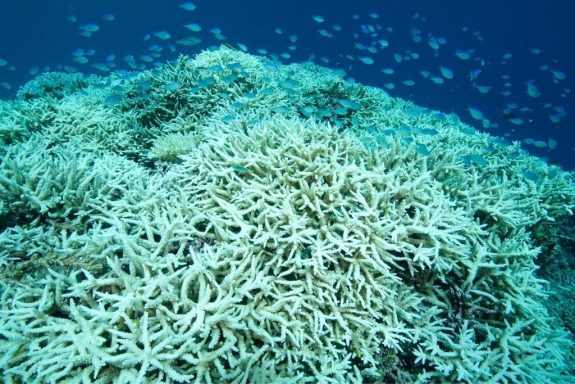CSIRO study shows marine heatwaves have significant impact on microorganisms

CSIRO News Release
A new study led by Australia’s national science agency, CSIRO, shows that marine heatwaves (MHWs) are altering the microorganism communities that form the base of the marine food chain, disrupting coastal ecosystems.
Australia has recently experienced a number of marine heatwaves off the East Coast and Tasmania.
They are prolonged oceanic warm water events that can have significant impacts on marine life, including fish, coral reefs and kelp forests.
MHWs can be caused by a range of factors, and large climate drivers such as El Niño are known to impact their frequency, intensity and duration.
Lead author Dr Mark Brown said the researchers analysed a MHW off Tasmania in 2015/16, an extreme warming event, finding it had significant impacts on microorganisms.
“The marine heatwave transformed the microbial community in the water column to resemble those found more than 1000 km north, and supported the presence of many organisms that are uncommon at this latitude,” Dr Brown said.
“This reshaping leads to the occurrence of unusual species, the development of unique combinations of organisms, and can cause cascading effects throughout the ecosystem, including changes in the fate of carbon sequestered from the atmosphere.
“For instance, we observed a shift away from the normal phytoplankton species at this site towards smaller cells that are not easily consumed by larger animals, potentially leading to profound changes all the way up the food chain.”
The study is the result of a long-term effort to observe marine microbiota for over 12 years.
CSIRO principal research scientist Dr Lev Bodrossy said researchers used a new approach to simplify the way they observed tens of thousands of marine microbes.
“This will enable us to evaluate the health of the marine ecosystem and predict how it will change with predicted global warming,” Dr Bodrossy said.
“We’ll be able to better predict the future of fish stocks and marine carbon sequestration in different regions of the global ocean.
“Observations like these, especially those done in the open ocean, are difficult to sustain but are crucial for understanding and forecasting the future status of the marine ecosystem,” he said.
The article ‘A marine heatwave drives significant shifts in pelagic microbiology’ was published in Nature’s Communications Biology
Like what we do at The AIMN?
You’ll like it even more knowing that your donation will help us to keep up the good fight.
Chuck in a few bucks and see just how far it goes!
Your contribution to help with the running costs of this site will be gratefully accepted.
You can donate through PayPal or credit card via the button below, or donate via bank transfer: BSB: 062500; A/c no: 10495969
2 comments
Login here Register here-
Clakka
-
New England Cocky
Return to home pageThank goodness researchers are continuing with their endeavors, with the aid of ever advanced scientific tech and computing power. One can’t help wondering just how many decades it will take for anything to be done on scale to address the issues given the current state of regression in the processes of politics.
Thank goodness that CSIRO continues to produce excellent reaearch despite the hinderance of the COALition since Little Johnnie Howard in1996.